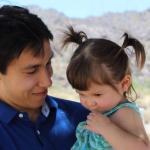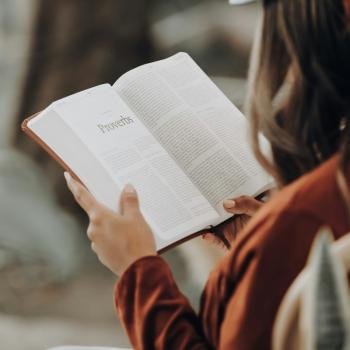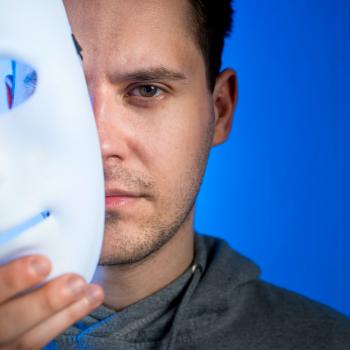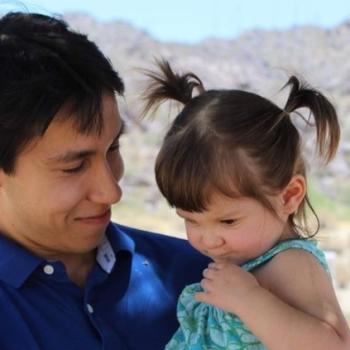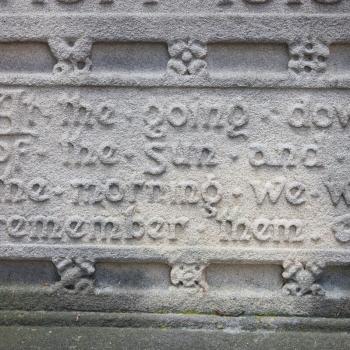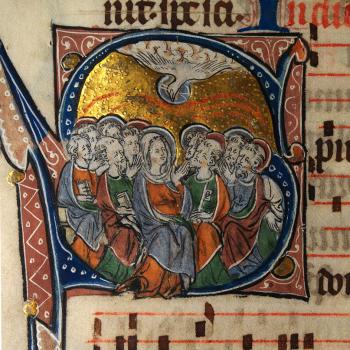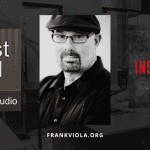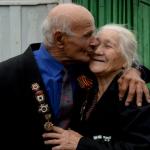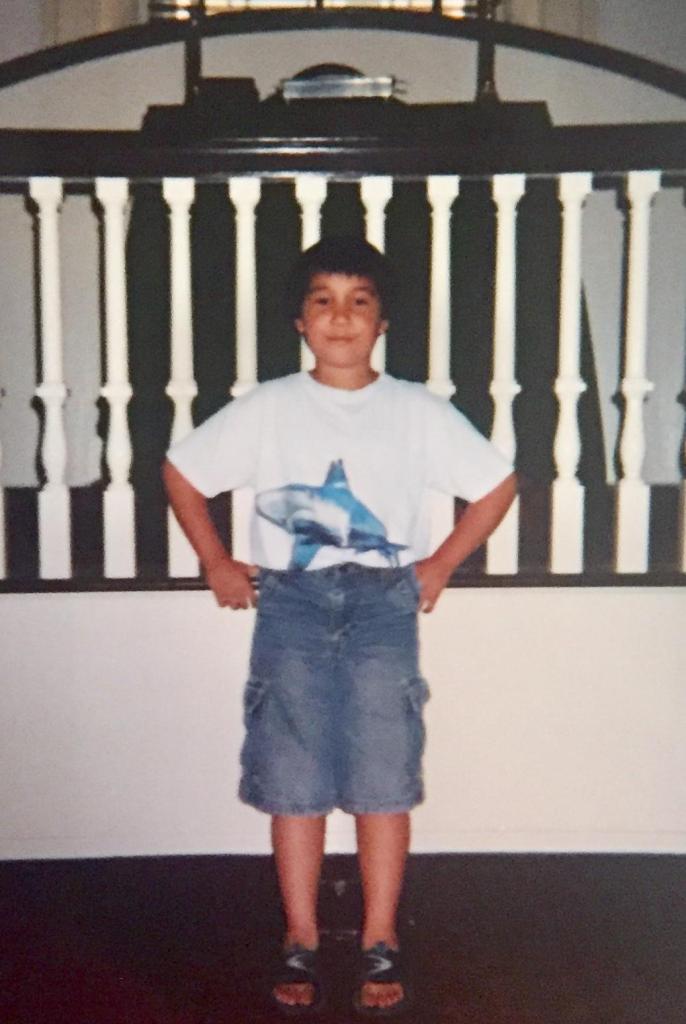
This post reflects upon the importance of not taking our independence as humans for granted. Independence entails choosing freely and taking responsibility for our actions, thereby affirming our dignity. When we do so, every day is Independence Day.
Growing in Conscious Awareness of the Freedom to Choose
My daughter Julianne and I cherished the opportunity to sit outside in the shade with Christopher at his care facility on the Fourth of July. Christopher is my son and Julianne’s older brother. If this is the first time you have read my blog, it will help for you to know that Christopher endured a traumatic brain injury three and a half years ago. He is in a minimally conscious state, rarely talks, and cannot walk. He has a feeding tube and a trach.
Medically and legally speaking, Christopher is incapacitated and completely dependent on others’ care. That said, we are finding that he is slowly growing in expressing his independent spirit. The injury did not eradicate Christopher’s indominable will! How fitting that his nurse and a resident who is a friend highlighted Christopher’s independent spirit yesterday afternoon on Independence Day.
Just like when he was growing up, Christopher has a mind of his own. Fully conscious or minimally conscious, it doesn’t matter. He is showing signs of responding more to others and affirming his own agency. Like Christopher, may we grow in the conscious awareness of our own agency and the accompanying freedom to choose. If he’s not taking human agency and freedom to choose for granted, neither should we.
Showing Signs of Increasing Independence
The nurse who is closest to Christopher informed me yesterday that Christopher is showing signs of growing in independence. He is starting to protest more when she tries to give him his eyedrops. He has always hated the eyedrops and would express disapproval with facial expressions and movements. However, only recently, he has really started to put up a fight when his nurse administers the eyedrops.
For example, when his nurse came into his room and said it was time for the eyedrops, he closed his eyes tightly and pulled back his right hand and arm as if he was going to slug his nurse. She said, “Christopher, open your eyes to see who is giving you the eyedrops.” Slowly he opened his eyes to see her, slowly put down his fist, and turned his head away.
Christopher’s fellow resident has said a few times recently that Christopher is expressing independence when they are sitting together in their wheelchairs. When I turn and walk away for a second, Christopher starts moving his arms and blinking his eyes. When I return, he is often subdued. Our resident friend says that Christopher is doing things his own way. He does not always like to follow his father’s directives by way of prompts to see if he will blink or move his arm toward me. The same occurred when he smiled big upon seeing our resident friend. The smile stayed plastered on his face until I tried to take a photo to share it later with his mom.
Another nurse told me that Christopher will either give her a thumb’s up or raise his middle finger depending on the situation. He reserves the middle finger for her when she washes Christopher’s face. I want to imagine that my son is simply using a one finger salute to honor his caregiver for her incredible service. Regardless of the meaning, like them, I would take a middle finger, pinkie, and thumb, or even his fist to my face just to see Christopher express his independent spirit and agency.
My son is also making more sounds that appear like protests when a CNA with whom he is close teases him, even early in the morning. I love the staff’s playfulness and their efforts to get Christopher to respond. They know he is not an automaton.
Being Attentive to Conscious Control
It is upsetting to me when some caregivers do not really see Christopher. They do what is required of them, but do not see the person. Even though these nurses and CNA are very busy, they pay attention to the little things, including signs of conscious control. The same is true of the resident friend. Like one of my favorite authors John Steinbeck, they observe people closely. May you and I be attentive to our own acts of conscious control.
It has always been the case that with Christopher, what you see is what you get. He lets you know what he thinks no matter what you or his dad thinks of it. It is quite striking to me that even though Christopher is often mentally submerged much of the time these past few years, he appears to be surfacing more than before. I can only wonder what he will say to me if, and when, he tells me what he is thinking. I can assure you that he will speak his mind.
Conscious Actions, Not Blind Fate or Reflex
Submerged or surfacing, my adult son teaches me a lot about life. He teaches me that we should cherish the fact that our conscious actions are not the result of blind chance. How I long to see evidence of Christopher responding rather than merely acting. It can be as simple as bumping his fist and observing times when he returns the favor not by way of reflex or reaction, but pro-action.
One of the greatest privileges of being a human is to act and take responsibility for our actions. We must not allow forces that weigh heavily upon us to get the upper hand. This includes various maladies like a traumatic brain injury, peer pressure, or political and economic constraints. Acting and taking responsibility for our conscious or even minimally conscious actions is the only way we can affirm our dignity. After all, we are not automatons or cogs in a machine wherein we have no freedom to choose. We should never seek to get away with saying the system made me do it.
John Steinbeck’s Travels with Charley in Search of America and Individual Freedom
Earlier I mentioned Steinbeck. I was reminded of a scene in Steinbeck’s Travels with Charley in Search of America where Steinbeck reflects upon human responsibility. Travels with Charley is the Pulitzer and Nobel prize-winning author’s account of a cross-country road trip with his poodle named Charley. Steinbeck aims to go in search of America. He wanted to reconnect with his country, claiming that he did not really know it.
Early on in their journey, Steinbeck stops one Sunday morning in Vermont to hear a fire and brimstone preacher talk about heaven and hell and that we are all responsible agents who must give an account to the Almighty for our actions. Here are a few lines:
The service did my heart and I hope my soul some good. It had been a long time since I had heard such an approach. It is our practice now, at least in the large cities, to find from our psychiatric priesthood that our sins aren’t really sins at all but accidents that are set in motion by forces beyond our control…He put my sins in a new perspective. Whereas they had been small and mean and nasty and best forgotten, this minister gave them some size and bloom and dignity. I hadn’t been thinking very well of myself for some years, but if my sins had this dimension there was some pride left. I wasn’t a naughty child but a first-rate sinner, and I was going to catch it.
Steinbeck never struck me as being a religious man. Rather, he was to me a humanist in the best sense of the term. He wished to affirm human dignity by prizing the individual’s human agency and responsibility.
Steinbeck’s East of Eden and Individual Freedom
In another one of his classic works, he reflects upon this same theme. In East of Eden, which is his literary exploration of Cain and Abel, he writes about the importance of individual freedom. In reflecting upon God’s call to Cain, who is envious of his brother Abel, and is debating what to do about it, Steinbeck writes,
But the Hebrew word, the word timshel—‘Thou mayest’— that gives a choice. It might be the most important word in the world. That says the way is open. That throws it right back on a man. For if ‘Thou mayest’—it is also true that ‘Thou mayest not.”
This is not theology. I have no bent towards gods. But I have a new love for that glittering instrument, the human soul. It is a lovely and unique thing in the universe. It is always attacked and never destroyed – because “Thou mayest.”
And this I believe: that the free, exploring mind of the individual human is the most valuable thing in the world. And this I would fight for: the freedom of the mind to take any direction it wishes, undirected. And this I must fight against: any idea, religion, or government which limits or destroys the individual. This is what I am and what I am about.
American Freedom and Human Identity
I fear that in many quarters today, we Americans have lost touch with what true independence entails. Choosing to act rather than leaving it to someone else along with taking responsibility for one’s actions is essential. Deferring to someone else and blaming others or fate rather than accepting consequences when one does act is not only un-American, but more importantly, inhumane. We discount our unique human identity and dignity when we do not choose to act and accept the consequences.
A Life and Death Journey in Pursuit of Freedom
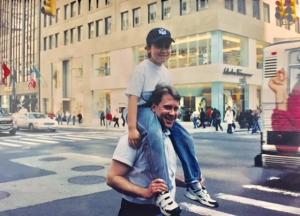
My son Christopher and I have not been on a cross-country journey with a poodle, but a life-and-death journey in pursuit of freedom with TBI. Even though dependent on so many people for his care, I sense that my independently-minded son is slowly, increasingly expressing his views and convictions.
Christopher’s life has never really been easy. And yet, he has always accepted his life for what it is and has tried to better himself to the best of his abilities. I sense the same tenacity and determination now.
One of the reasons I have always respected Christopher is that he is his own person. I gain strength from being at his side. My son helps me to be, to have the courage to be me, to accept my life, and do the best with the opportunities and abilities allotted to me. Christopher is very genuine, always seeking to be himself, not someone else. You and I should do the same.
Be Special. Choose to Be Yourself.
All too often, peer pressure or fear of making a mistake or some other inhibiting concern stands in the way of us being ourselves. For example, I sense that many people copy others in hopes of being someone special. They want to be somebody else in hopes of gaining significance. How enslaving and banal. How tragic. As a result, they ironically discount their inherent significance, their unique and unrepeatable personhood, and dignity. May we not follow suit. Choose to be yourself. Only then are you truly special.
That has never been Christopher’s prerogative. Even now, he is freer than many people even with TBI in that he has only ever really wanted to be himself no matter what, come what may. How special and significant he is.
Independence Day More Than a Holiday
Let’s be independent by being true to who we are. May we take responsibility for our actions no matter what, accept our lives for what they are, improving them the best we can, thereby affirming our significance and human dignity. In that way, Independence Day is more than a holiday. It is every day.



